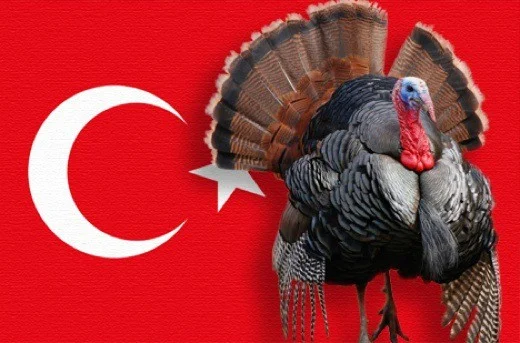Turkey changes its name to stop confusion with festive bird and derogatory English meanings
Turkey will now officially be known as Türkiye after the country’s government moved to swerve associations with the ground-feeding festive bird and a term for failure.
The United Nations will adopt the new name from this week at Ankara’s request.
UN spokesman Stephane Dujarric said the change came into place ‘from the moment’ a letter sent by Turkish foreign minister Mevlut Cavusoglu.
President Erdogan ruled in November that goods manufactured in the country must now be labelled ‘Made in Türkiye’.
The alternative spelling expresses Turkish people’s ‘culture, civilisation and values’, he said.
Türkiye is pronounced Tur-key-yay, in line with how Turks annunciate the country’s name.
The president and his advisers are said to be embarrassed by their country’s association with the festive bird and the slang term for ‘something that fails’.
‘The association with the bird genuinely annoys Erdogan and the people around him’, according to Selim Koru from the Foreign Policy Research Institute.
‘Their claim is that Türkiye conveys Turkey’s eternal spirit more than the English word’, he told BBC News.
The Cambridge English Dictionary lists ‘turkey’ to describe not only the ground-feeding bird but also ‘something that fails badly’ and ‘a stupid or silly person’.
Critics have accused Erdogan of using the plot to distract Turks from economic hardship.
Ankara is also launching a new military offensive in Syria at the same time as it is blocking Finland and Sweden’s bids to join NATO.
Contrary to popular belief, the country actually gave its name to the bird.
Ground-feeding cocks and hens were exported by the Ottoman Empire during the Middle Ages.
That led English-speakers to refer to the birds as Turkeys as they were from ‘the land of the Turks’.
Turkey has been known by its current name since around 750AD.
With the official spelling change to come into place shortly, it won’t be for much longer.





















